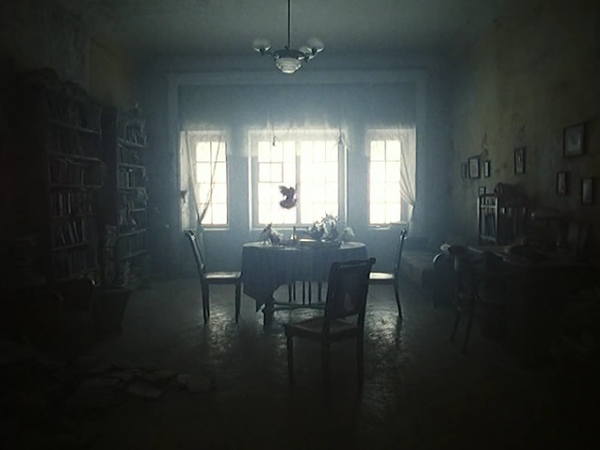
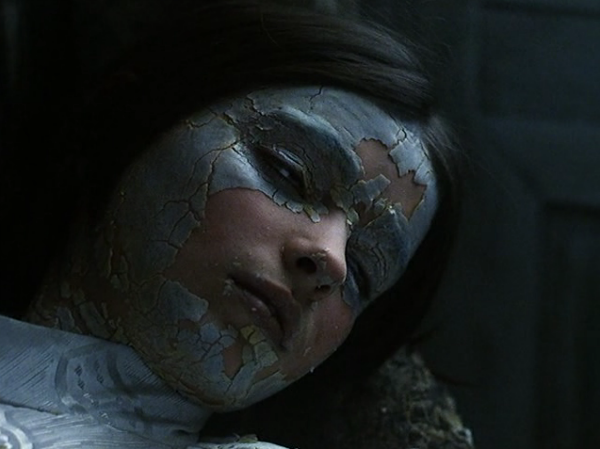
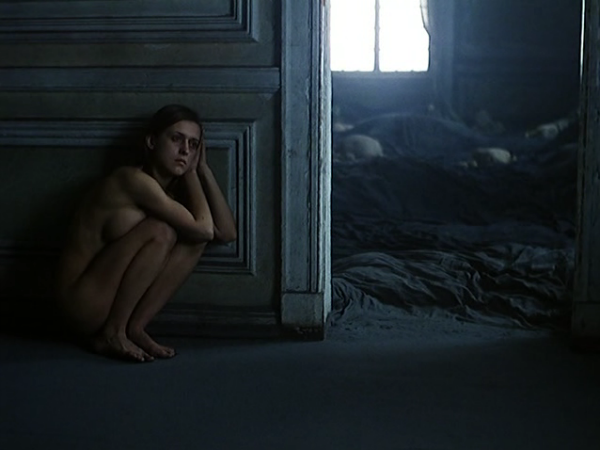
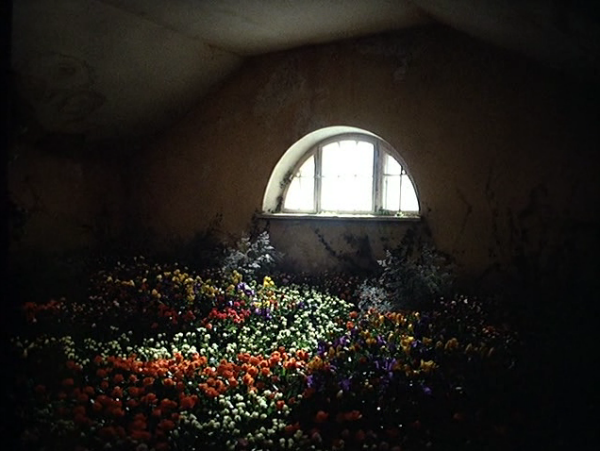
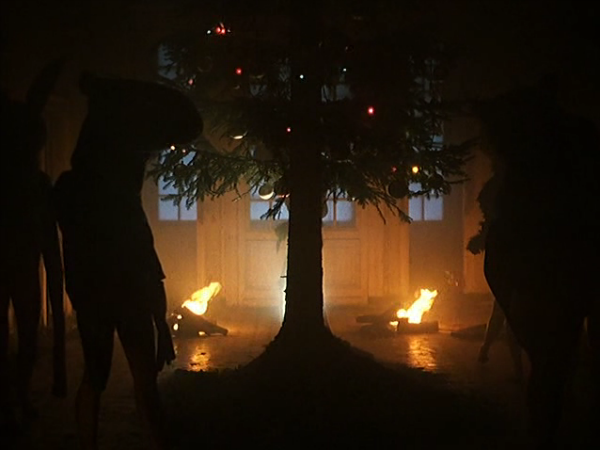
Except for the brief narration in the beginning, the film is wordless. A young man wakes up in a grand decrepit mansion. The house is inhabited by various people in many different rooms. There is no decipherable communication among them. They eat and drink together at the table under the grand chandelier. One room is occupied by a man who plays chess against himself, one filled with naked giggling children, one with an accordion player, and so on, and so on. Everywhere you look, it's a beautiful decay. The house is steeped in cold, damp melancholia.
A Casa is perhaps the most visually stunning film I've ever encountered. Time stands still in this mansion. Yet present is too fleeting: one can't be sure if it really exists. Its dreamlike visuals are neither nightmarish or overly pleasurable. There is something deeper at work here. I resisted the temptation of regarding each room as some type of metaphor and seeing the film as a Mathew Barney style slick moving art installation. Watching the film, one can still feel the dark days of the former Soviet rule lingering in those soulful faces. They speak thousand words with their stares. And no one captures Eastern European melancholy like Bartas. The film climaxes with the Christmas Supper scene and fireworks. I was in non-narrative film heaven. A truly rapturous experience.